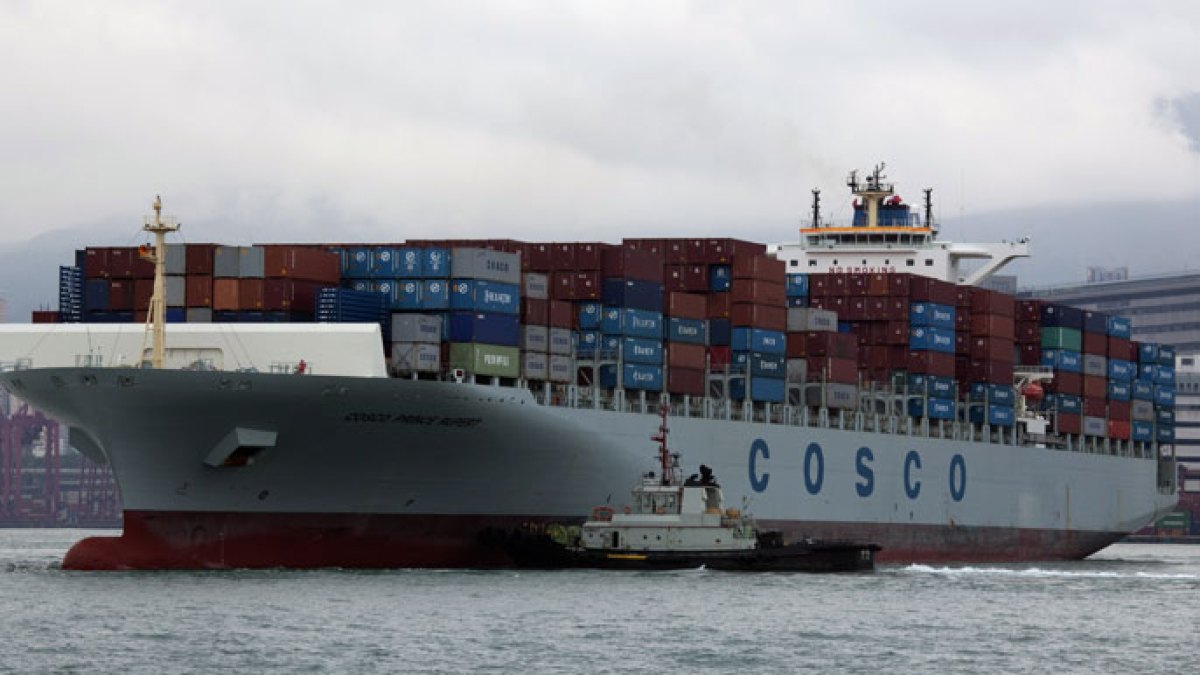Chinese shipping giant COSCO has stopped sailing to Israeli (European) ports
The Israeli newspaper Globes said it had learned from private sources that Chinese state-owned shipping giant COSCO had stopped sailing towards Israeli ports.
The newspaper pointed out that the Chinese company, which is the fourth largest shipping line for containers in the world, and contributes about 11% of global trade, took this step due to the escalation of tensions in the Bab al-Mandab Strait and the Red Sea after the Houthi group in Yemen intercepted transport ships heading to Israel, in support of the Gaza Strip, which is subjected to continuous aggression from the Israeli occupation that resulted in the death of about 23,58 Palestinians, the injury of more than <>,<> others and significant destruction.
Besides affecting trade between the Far East and Israel, COSCO's decision is sensitive because it is cooperating with Israel's Zim shipping line, which will have to operate more ships on Far Eastern routes, which could lead to higher shipping costs with a shortage of ships.
The other direct impact, according to Globes, will be on the port of Haifa, which is operated by another Chinese state-owned company, SIPG, as the port relies heavily on Cusco ships.
Several major shipping companies, such as Hapag Lloyd and Maersk, have stopped using routes through the Red Sea and the Suez Canal because the Houthi group targeted ships bound for Israel, causing significant damage to global trade.
These companies began diverting ships to the Cape of Good Hope route to avoid attacks, increasing fees required of customers and adding days or weeks to the time to transport goods from Asia to Europe and to the east coast of North America.
The chief executive of Israel's Eilat port, Gideon Gulber, said earlier that the port's activity had declined 85% since the Houthis in Yemen intensified their attacks on ships bound for Israel in the Red Sea.
About 10 percent of oil trade and 8 percent of liquefied natural gas trade pass through the Suez Canal, including about two-thirds of crude from the Gulf region.
About 30% of the world's shipping containers pass daily through the 193-kilometer Suez Canal and about 12% of all global trade is all goods.
Source: Israeli Press + Agencies

